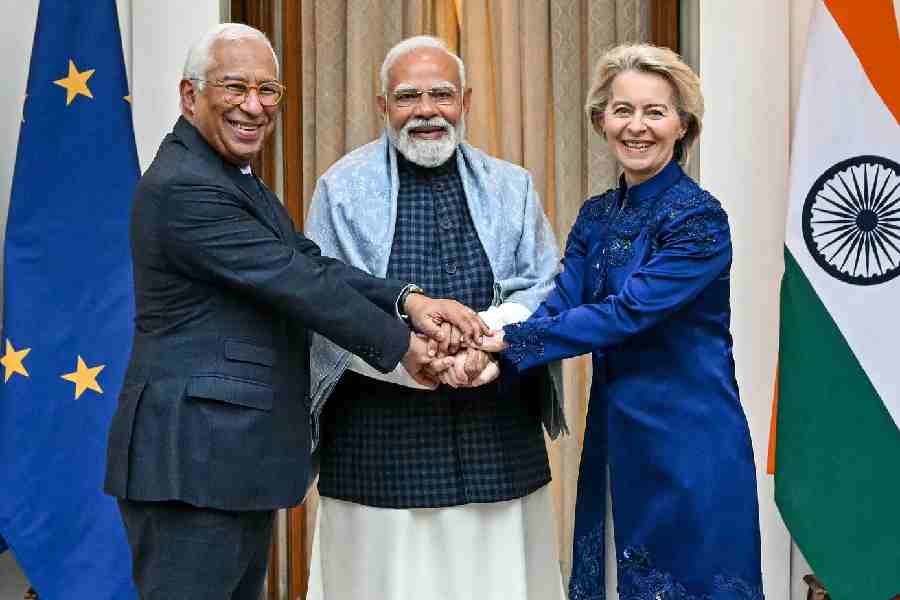
Sometimes the news cycle makes you feel like you were living under a rock. I had never heard of Anthony Bourdain till he died. I felt ambushed by the avalanche of praise and lamentation that his suicide set in motion. I thought to myself, for heaven's sake, the man wrote about restaurant food. I read a blurb that claimed reading him was like reading Elizabeth David channelled by Quentin Tarantino which made me feel even more hostile because everyone knows (or should) that David on food (like Pauline Kael on film) stands alone on Everest.
I learnt that his break-out piece was something he had written in the New Yorker around the turn of the century about what really happens in a restaurant's kitchen called "Don't eat before reading this". So I googled it. It was amusingly written and the Tarantino comparison was justified if only because it was driven by a violent knowingness about gore and meat. There was a passage on vegetarians that had me grinning:
"Even more despised than the Brunch People are the vegetarians. Serious cooks regard these members of the dining public - and their Hezbollah-like splinter faction, the vegans - as enemies of everything that's good and decent in the human spirit. To live life without veal or chicken stock, fish cheeks, sausages, cheese, or organ meats is treasonous."
As a born-again carnivore forced to accommodate vegetarians while cooking for friends, I nearly sympathized... till I remembered that I was raised vegetarian by two vegetarian parents who inhabited a vegetarian universe with as much cultural confidence as Bourdain, atop his emporium of meat. India is a useful point of reference while writing about food because it's probably the only place in the world with a critical mass of vegetarians.
While the majority of Indians are meat-eaters, vegetarians are, in a curious way, hegemonic. Thanks to Jain and Hindu strictures against killing animals, vegetarianism in India has entered a claim to being seen as a culturally more evolved state and this claim has some traction even amongst non-vegetarian desis. This allows, for example, Bharatiya Janata Party governments to take eggs off the menu for school meals - even though they are an invaluable source of protein for poor children - with less outrage than such irrationality would provoke in another culture.
The happy, over-the-top contempt that Bourdain and his ilk have for vegetarians is matched and surpassed by the revulsion that offal-eaters very likely inspire in master cooks in Udupi restaurants. Or in my father. Watching me make large inroads through a plate of rogan josh in a restaurant, he said, half-seriously, in an over-Englished way, "Your insides must be a charnel-house of bones."
The difference between the two prejudices is that Indian vegetarians have always lived with meat-eaters while vegetarianism in the West, till relatively recently, was seen as an alien affectation, a fad. Bourdain, writing in 1999, is being knowingly 'robust' for an audience primed to giggle.
This style of dismissal is an exercise in cuteness, a way of being archly parochial, secure in the knowledge that the provocation will resonate with people-like-you at the expense of humourless political correctness. Think of Lionel Shriver's re-heated rant about Penguin's determination to reflect the demographic composition of Britain in its author list. Instead of understanding this to mean that Penguin would look for talented writers in communities unrepresented in British publishing, Shriver decided that this could be sent up as a po-faced attempt to promote diversity through quotas at the expense of talent. So she wrote this: "We can safely infer from that email that if an agent submits a manuscript written by a gay transgender Caribbean who dropped out of school at seven and powers around town on a mobility scooter, it will be published, whether or not said manuscript is an incoherent, tedious, meandering and insensible pile of mixed-paper recycling."
What this passage tells anyone who has ever written a column is that Shriver was trying to make her word-count and her editor was looking for click-bait. It's hard to think of another reason for allowing a sentence as clunky and strung out and clichéd as this to see print. The daddy of this style of commonsensical dismissal is Orwell. In The Road to Wigan Pier, writing about socialists and socialism in England in the 1930s, Orwell holds out for a rooted, working-class socialism instead of a socialism of faddists and hipsters:
"One sometimes gets the impression that the mere words 'Socialism' and 'Communism' draw towards them with magnetic force every fruit-juice drinker, nudist, sandal-wearer, sex-maniac, Quaker, 'Nature Cure' quack, pacifist, and feminist in England."
For a sentence that's trying so hard to be manly that it nearly pulls a muscle, it is also peculiarly ingratiating. It button-holes the reader and beseeches him (and it is a 'him' that Orwell is writing for), waving a dhobi-list of faddists, to agree. If you rewrite Orwell's sentence by replacing his fashionable fringe groups with their mainstream opposites, the sort of people he'd have rather had at those socialist meetings, you get "...beer-drinking, buttoned-up, booted, repressed, militant, aspirin-eating, war-mongering, male chauvinist..." What emerges isn't some salt-of-the-earth Everyman, but an identikit monster.
But you can't re-write Orwell's sentences or seriously object to Shriver's provocations because that's a literal-minded, tone-deaf thing to do. Bourdain, Orwell and Shriver, we're told, are being cleverly hyperbolic in the service of a serious point. Bourdain is arguing against fanatical purism in food, Orwell is asking for socialism to be built around the real working class, not middle-class dilettantes, and Shriver is mocking the fetishizing of diversity at the expense of good writing.
Orwell's anathemas have worn so badly that reading that sentence is like watching a car crash. Bourdain's riff is instructive, particularly for desis. It shows us how indispensable India is as a point of reference; if India didn't exist we would have no way of imagining a world where vegetarians are normal customers, not obsessive cranks.
Shriver's calculated trolling is based on the assumption that affirmative action everywhere isn't just wrong, it is dysfunctional, in that it never achieves its objects. There isn't the space here to discuss something as complex as the successes of scheduled caste reservation in India, but a smaller example from elsewhere will do just as well. After apartheid, the South African cricket board introduced targets for the racial composition of national sides. The Shrivers of the cricketing world moaned about 'merit', 'quotas' and the end of excellence. Black Africans played football not cricket; it was politically-correct lunacy to go looking for Test-level cricketers in an indifferent community. Long story short, the policy fast-tracked a set of brilliant black cricketers, amongst them South Africa's principal fast bowlers: Lungi Ngidi and Kagiso Rabada. Rabada is arguably the best fast bowler in the world today and he wouldn't have been in the team if the cricket board hadn't been forced to target diversity.
Whether it's food, sport or politics, there is a bluff, mainstream way of sending up people outside the fold as perverse, precious or dumb. The people who use this idiom demand the benefit of the doubt in the name of irony or truth-telling or provocation. What they deal in is grinning malice, made up in equal parts of prejudice and ignorance which is always entertaining though not in the way they intend. We should deny them their alibis but give them their head.










